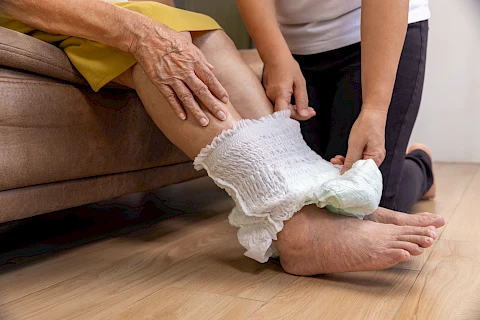
Bladder control issues are shared among the elderly and can impact the quality of life. Openly addressing this issue is essential, as there are effective ways to manage senior incontinence with dignity. We are here to help you through these challenges with a practical guide.
What Is Incontinence?
Incontinence is the inability to control urination or bowel movements. There are several types, including stress, urge, and overflow incontinence. Each type has different causes, making it essential to identify which one you may be dealing with. Common causes in older adults include weak bladder muscles, urinary tract infections, and mobility issues. Bladder function problems can affect daily activities, causing stress and embarrassment, but understanding the condition is the first step towards managing it effectively.
Practical Solutions to Manage Senior Incontinence
Handling issues with bladder control begins with some practical changes. You need to incorporate lifestyle adjustments, such as pelvic floor exercises. These exercises strengthen the muscles that control urination. Dietary changes can make a big difference. Avoiding caffeine and alcohol and eating a high-fiber diet can reduce symptoms. Another helpful strategy is to maintain a regular bathroom schedule. Going to the bathroom at set times reduces the urgency and frequency of episodes. These tips can help you handle the condition more proactively.
Elderly-Friendly Products for Bladder Function Issues
There are many products available to help manage senior incontinence comfortably. Protective products like pads and specially designed underwear offer discreet options for keeping you dry. When choosing products, consider your needs, such as absorbency level and comfort. It's also worth exploring innovative solutions, like odor-control fabrics and moisture-wicking materials, which offer additional comfort and discretion. Trying out different products can help you find the best fit for your lifestyle and needs.
The Role of Healthcare Providers
Health professionals can help address bladder problems. Don't hesitate to discuss the situation with your doctor. They can diagnose the type of bladder condition and recommend personalized solutions. Healthcare providers might suggest medications, exercises, or even medical devices that help control it. Seeking medical advice ensures you receive the proper treatment and support for your condition.
Communicating With Family Members
Open communication with family members is crucial. Talking about it can be uncomfortable, but you need to share how you're feeling and what support you need. Discussing sensitive topics can bring families closer and provide the emotional support required to tackle bladder control issues. Encouraging an open dialogue allows family members to understand your daily struggles and help where they can, promoting a supportive environment.
Senior Helpers Summerville Supports the Elderly and Their Families
Addressing bladder function problems can enhance the quality of life by following our tips to manage the condition effectively. Healthcare providers and families are essential allies in this journey.
If you need assistance or support, contact Senior Helpers Summerville. We proudly serve the communities of Summerville, Orangeburg, Santee, Summerton, Ridgeville, and St. Matthews. We offer compassionate support to help manage senior incontinence.